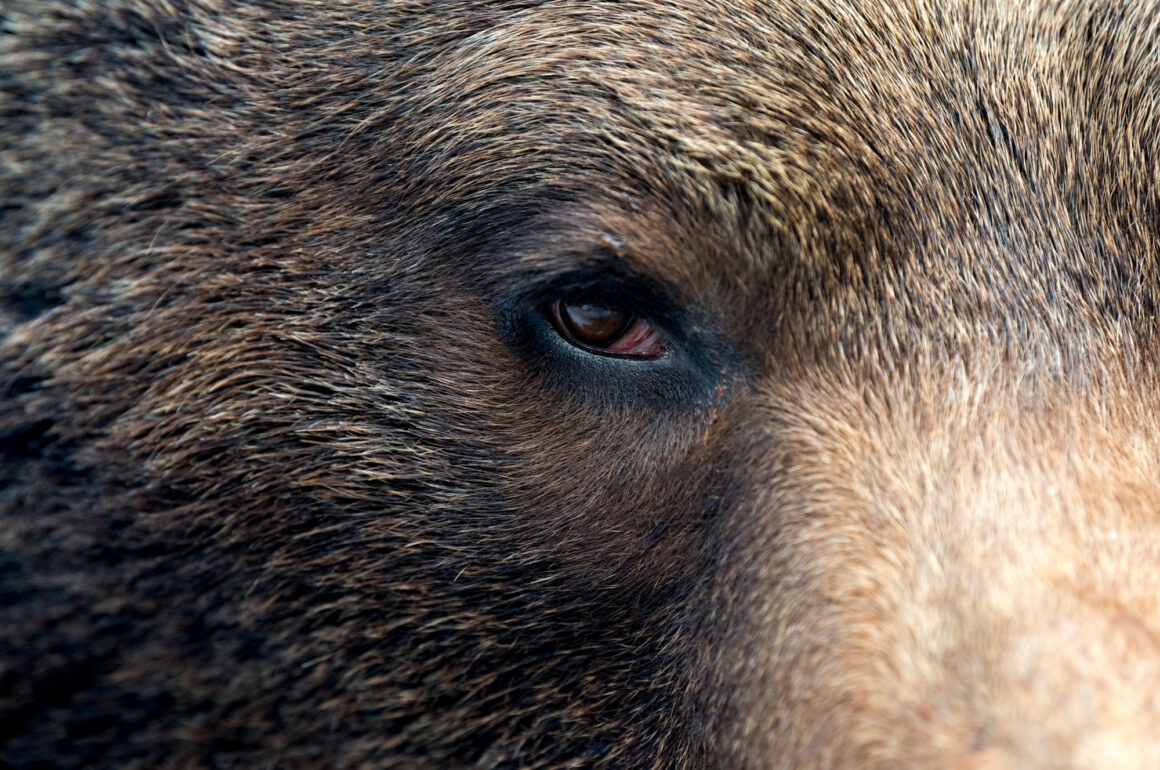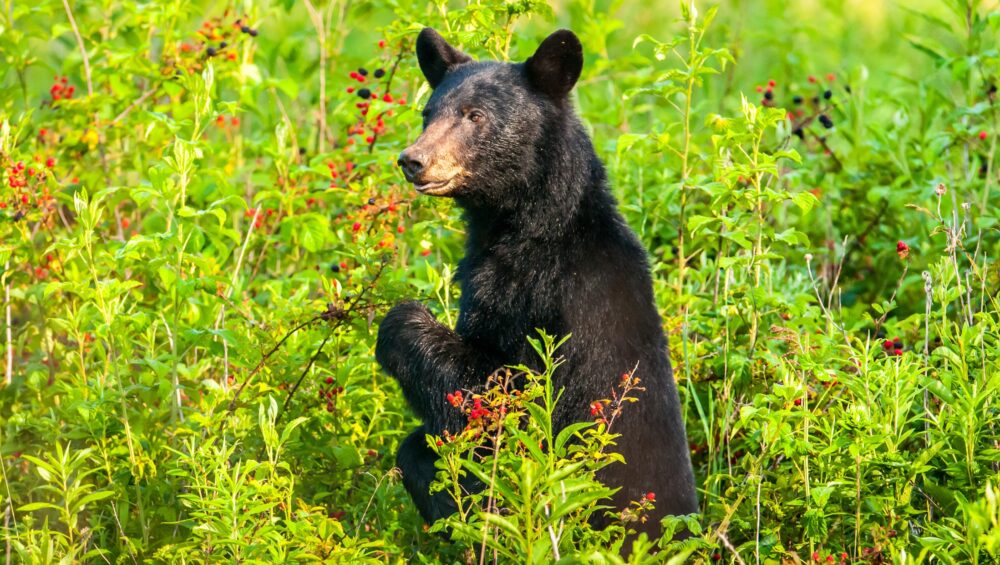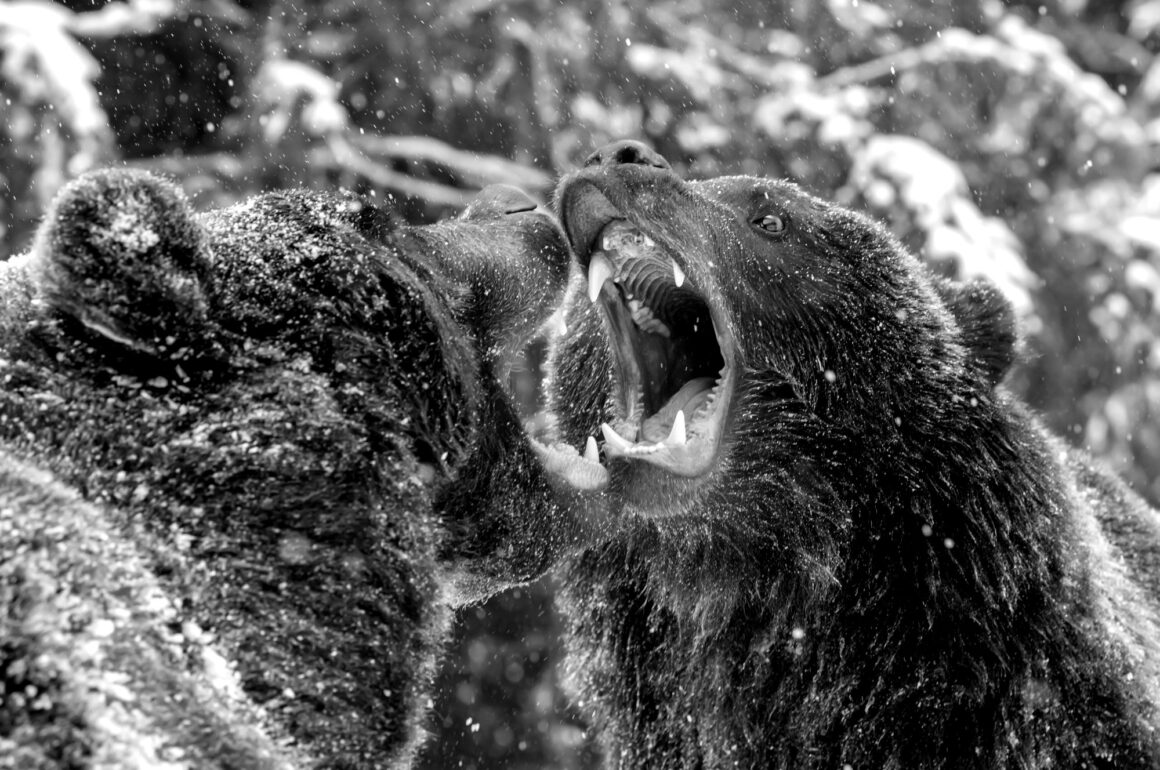Do Bears have bad eyesight?
According to the Bear Whisperer, Blaine Anthony, “Bears have vision that is at least as good as humans.”
There are many false beliefs spread about bears. Both of these statements, “Bears can’t climb trees” and “Bears can’t run downhill,” are false. It is a frequent misunderstanding that bears have terrible vision.
Although this misunderstanding is natural, research shows that bears have vision on par with humans.
Blaine’s experience with bears spans more than two decades. He accompanied bear biologists as they went to dens in order to catch bears and put collars on them for future research. He has also traveled to Alaska, where he witnessed bears emerging from their dens on a snowy mountainside.
When I was in Alaska,
To paraphrase, “When I was in Alaska, I witnessed a bear on the side of a mountain spying on us and immediately sprinting up and over the peak,” he remarked. As I watched from a distance with my binoculars, the bear stopped climbing many times to turn around and stare at me. That is good eyesight.
Lee Huntsman, the keeper of the animals at a private zoo south of Cleveland, Ohio, runs the park. He has black bears and Syrian bears, which are like Asian grizzlies, among his 240 creatures. Over the course of the last decade, he has worked with thirty different bears.
Huntsman explained that because of how kids are raised, “they have a different reaction to one person than they do to another” when they see that person. They only listen to those who provide food for them.
When I was in Alaska.
They don’t just identify the humans when they see the meal pail. They have exceptional vision. I would estimate that they can spot a single individual from a distance of 200 feet.
Bears, according to the huntsman, have excellent night vision. I can sneak up on them at night and know they can see me just by their reactions. They have excellent night vision, in my opinion.
The tapetum lucidum is a reflective coating that lines the back of the eyeball in bears and many other animals. This layer improves night vision by reflecting light back into the retina, where it can trigger light-sensitive cells for a second time.
This is the reason why dogs, cats, and other nocturnal animals have such brilliant eyeshine when a strong light is shone in their direction.
The polar bear’s eyes have evolved in a unique way that allows it to function well underwater. When they go underwater, their eyes are protected by a transparent inner “eyelid” called a nictitating membrane, which also acts as a second lens.
Just how many people do you think have perfect 20/20 vision?
There’s a wide range of nearsightedness and farsightedness, and both improve and deteriorate with age. Vision and hearing decline with age; animals likely experience the same decline. Young, healthy bears have, on average, decent vision. There’s a lot of speculation that they have terrible eyesight, but I don’t find that to be the case.
Bear researchers currently believe that bears have vision comparable to humans. That doesn’t mean bears have a human-like vision. Some aspects of their eyesight, like night vision, may be improved, while others, like the ability to detect motion far away, may be diminished.
The argument is that bears do not have impaired vision and needlessly roam around. Additionally, their olfactory sense is far more developed than their visual one.
Most people’s false beliefs about bears stem from a lack of knowledge or an incorrect assumption. If a bear doesn’t react to a person’s presence, the observer may conclude that the bear is unaware of their presence. It’s possible the bear had already scented and seen the human long before they became aware of the bear’s presence.
Bears often observe their surroundings without apparently reacting by sitting up or running away. That’s not to say it couldn’t see, though. Although humans often assume that bears would respond immediately upon seeing something, this is not always the case.
Bears, according to biologists
Bears, according to biologists, have one of the best senses of any animal. A bear will use its nose to investigate something even after it has a good look at it. Because of this, people often assume that bears have poor eyesight.
Because their sense of smell provides such a wealth of information, bears don’t appear to place much value on their eyesight. Similar to how people place more stock in their eyes than their noses, bears put more faith in their noses than in their eyes.
“We rely so much on our eyes,” said Phil Mooney, a state wildlife biologist from Sitka. “In my opinion, bears do not have the same cognitive abilities as humans possess. They don’t process information visually. A bear will use all of its senses if it stands up when you are walking across grass flats.”



